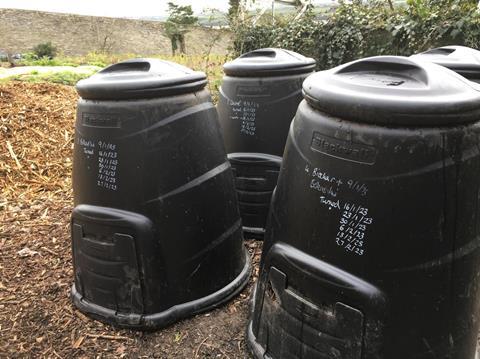Innovative Farmers field lab will look at compostable materials in plant production
Growers and researchers have joined forces to add scientific rigour to the art of compost making in a bid to improve yields, soil and plant health.

The new Innovative Farmers field lab with Farm Net Zero will explore how compost quality can be influenced by a wide range of variables during the production process.
The farmer-led research will assess how compostable materials, compost management, and temperature levels affect the nutrient availability, pH, and levels of weeds and disease risk.
Growers will trial a range of compost-management techniques including turning according to temperature rather than on a timed schedule, and adding biochar, bokashi, and bespoke microbial concoctions. All compost treatments will be replicated to deliver rigorous results.
’Pivotal role’
Triallist Amelia Lake, co-founder of the Real Food Garden near Trelowarth, runs a two-acre market garden within a 10-acre holding that supports a farm shop, veg box scheme, and a small pig herd. She said: “We see compost as playing a pivotal role – not just feeding the plants but feeding the soil and helping to capture carbon.
“For me, understanding and improving the value of the compost we have in the system is key. We hope to discover, in a more scientific way, what volumes can be used to achieve the best growth and crop quality.”
Researcher and adviser Dr Hannah Jones is supporting the group of farmers and growers who are centred around five growing sites in Cornwall. “We aim to investigate issues like, does each grower achieve the optimum temperature required to kill weeds and disease but at the same time optimising compost quality and the rate of production,” she explained.
Learning network
The field lab is being organised by Innovative Farmers - a learning network managed by the Soil Association - and is the first of three trials within the Farm Net Zero project, funded by the National Lottery Community Fund.
Innovative Farmers advisor Jerry Alford, who is co-ordinating the trial, said: “This field lab is exactly what farmer-led research is all about – putting theories to the test in real farm situations. The findings these growers make will not only help them improve their own businesses, they will also provide far-reaching guidance for any farmer who wants to improve their soil health.”



